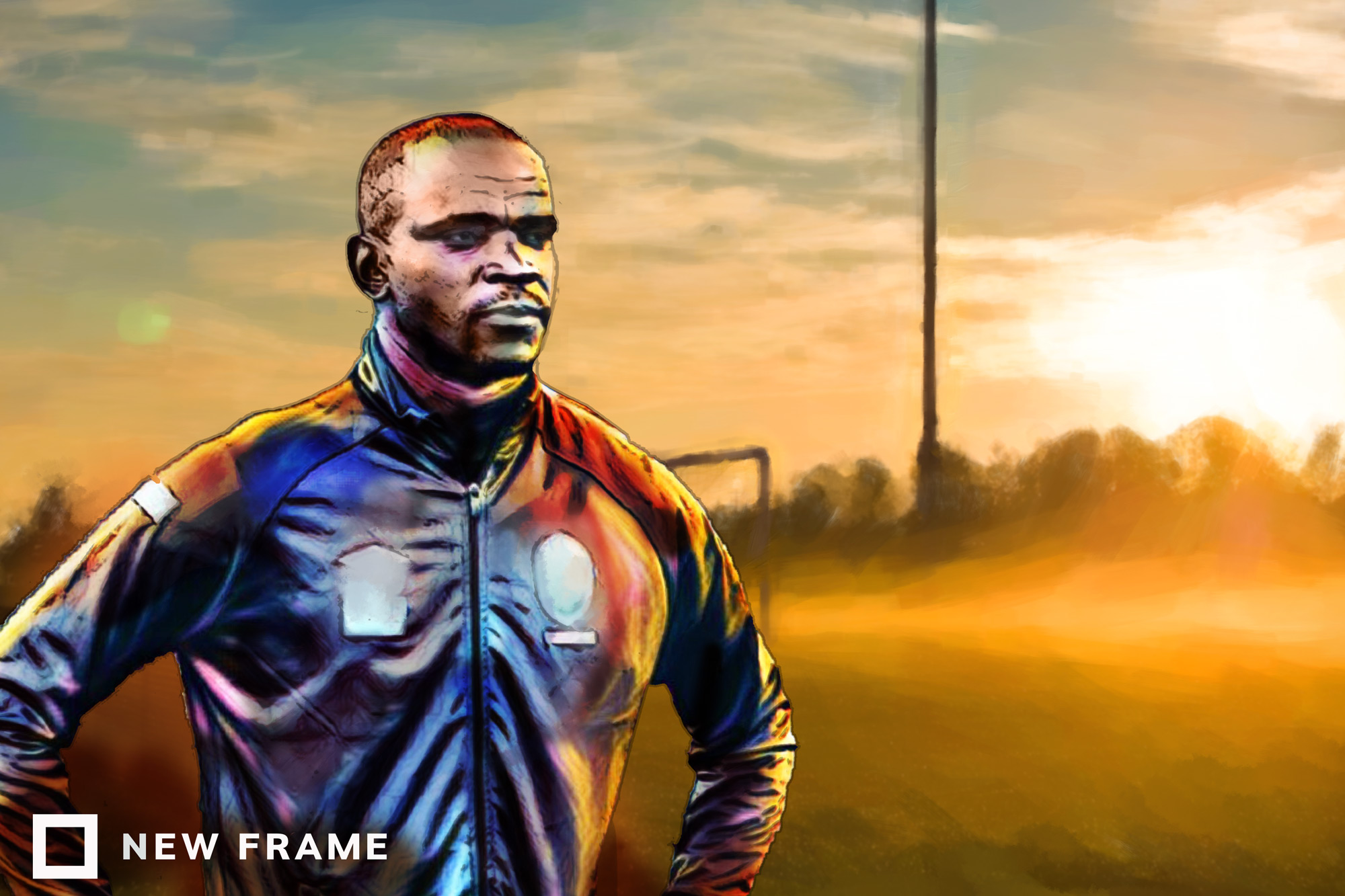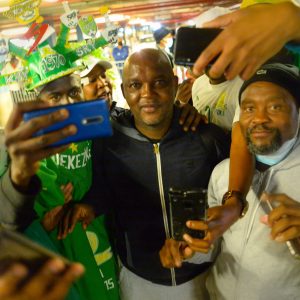SA football is a difficult space for young coaches
AmaZulu’s head coach Ayanda Dlamini discusses the challenges young coaches face in South Africa and how he managed to work his way into managing the first team.
Author:
17 October 2020

The South African football-coaching landscape is littered with European journeymen and experienced coaches who constantly get recycled by teams. It is an ecosystem that’s tough to break into for young coaches.
The high stakes nature of football, with millions invested and up for stake, means that most club owners go for the “safest” options in recruiting coaches to manage their players. That cautious approach also stems from many clubs struggling to get sponsors, and most of the money to run them coming from their owners’ pockets.
“Coaching is not [as] easy as it looks, that is why it is not easy for any club to give opportunities to those who are not tried and tested,” said AmaZulu head coach Ayanda Dlamini, 36.
“The biggest challenge when it comes to young and inexperienced coaches is getting that break into the industry. For South African coaches to grow they need to be given an opportunity to showcase their skills in coaching. This will not only help coaches but will help the South African football standard grow and we will no longer depend on foreign coaches. I am not saying they should be straight away given an opportunity in the senior team.
“It is okay to start at development structures so that one can learn more about football where there is less pressure. Being a top player does not necessarily transform one to be the best coach. I am one of the few who was given an opportunity just after playing days, for others it is not easy. I was very lucky to start my coaching career at an institution that I know so well. Even though the transition was not easy, knowing the culture of the club helped me settle well in coaching.
“When AmaZulu gave me an opportunity with Under-19 I knew exactly what I needed to do. I had to grab that opportunity with both hands and use it wisely. I needed to prove myself to the team that I am capable. Coaching Under-19 and MultiChoice Diski Challenge helped me a lot with understanding all the aspects of coaching. Moving to take reins as an interim coach of the first team was not an easy task. Professional teams are a different ball game from development teams.”
Related article:
Dlamini was appointed as interim coach of AmaZulu in March this year following the sacking of Jozef Vukušič, who left the club fighting to avoid relegation. Dlamini, who was assisted by Moneeb Josephs, managed to help the club keep its premier division status. For his efforts, Dlamini was rewarded with a three-year contract. The club’s new owner Sandile Zungu has set Dlamini a tough mandate of finishing in the top four.
“We were under pressure. I had to adjust quickly and use my experience as a player especially when it comes to communicating with players because I knew that it was one thing that kept the team together,” Dlamini said. “Bad communication in football doesn’t yield any good results. I had a bit of anxiety when I was given an opportunity. I didn’t know if I could perform the task at hand with success. It was the biggest task for me, but I had to take it because the management trusted me and gave me all their support. I am glad that everything turned out beautifully and I am looking forward to navigating my journey in the coaching world.”
‘I did not choose coaching’
While many coaches struggle to break into the landscape, for Chippa United coach Lehlohonolo Seema, 40, it was different. “I did not choose coaching, it chose me,” said Seema, who spent four years at Bloemfontein Celtic in various coaching positions before going to Chippa.
“After my playing days were over I wanted to venture into business. I did not have any specific business in mind. I wanted to be a businessman, but people kept associating me with football. I stayed at home for a while, the business part was not forthcoming. I then heard that coach Pitso Mosimane was paying for Safa licences, he was the Bafana Bafana coach by then. I decided to attend and that’s how I got back into football. The journey has not been smooth sailing… It has been a lot of hard work, patience and perseverance. I allowed myself to be taught, I also gave myself time to learn and attend coaching courses. I hold CAF B and A licences.
“Coaching is very different from playing, the challenges in coaching are much bigger. We don’t just dish out instructions, we manage different personalities and analyse the game. As coaches we also deal with social challenges from players that might also affect results in a game. There is a lot of pressure managing the team in the professional league, every game is important. Nonetheless, I am open to any challenges that come with coaching at the highest level. I am looking forward to the new season and its challenges. I would like to see the club play in all cup competitions.”
Related article:
Just like Dlamini, Mongezi Bobe helped a team he used to play for survive the drop. Bobe, 39, was part of the Black Leopards technical team that secured Lidoda Duvha’s premiership status after being drawn into the play-offs, where they took on Ajax Cape Town (now Cape Town Spurs) and Tshakhuma Tsha Madzivhandila. Bobe and Morgan Shivambu might have helped Leopards survive, but shortly after that the club announced Belgian journeyman Patrick Aussems as head coach.
“I always knew I wanted to be a coach when I retire,” Bobe said. “[Former Leopards’ coach] Sunday Chidzambwa introduced me into coaching. He would always say he sees a good leader in me. He would give me sessions to conduct at the training, from that sessions I knew I really wanted to go to coaching.
“I have been very fortunate that I have always occupied leadership positions in my playing days. That alone prepared me for the role I am in now. The challenges are very much different though, the biggest challenge in coaching is to keep the group happy. It is not easy at all, some other players don’t really want to understand why they sometimes don’t play. I have come to understand that it is impossible to make everyone happy. Besides managing the players as a young coach with not so much experience it is not easy to convince the management [of] the vision that you have.
“Team bosses are not easy people to convince and they are very impatient when it comes to young coaches. As a young coach nobody will believe in you until you do good for the team. You see, me and Morgan were thrown in a deep end, we had to prove to management that we can lead a team out of relegation. We carried a task given to us well, we have laid the foundation of trust that we are capable of coaching even during the toughest times while we were in the bio-bubble. Camping in a bubble was stressful on its own but when we went to the playoffs it helped us because we knew that all players were focused on it.”


